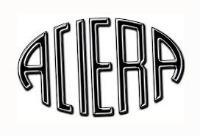Filter Kalman
- TheRoslyak
-
 Topic Author
Topic Author
- Offline
- Elite Member
-

- Posts: 238
- Thank you received: 37
Now I have input and output is same. (With default parametres)
Please Log in or Create an account to join the conversation.
- Aciera
-

- Offline
- Administrator
-

- Posts: 4653
- Thank you received: 2078
Please Log in or Create an account to join the conversation.
- PCW
-

- Away
- Moderator
-

- Posts: 17697
- Thank you received: 5174
Please Log in or Create an account to join the conversation.
- Aciera
-

- Offline
- Administrator
-

- Posts: 4653
- Thank you received: 2078
Please Log in or Create an account to join the conversation.
- andypugh
-

- Offline
- Moderator
-

- Posts: 19797
- Thank you received: 4607
github.com/LinuxCNC/linuxcnc/blob/master...s/filter_kalman.comp
What you describe is the behaviour with passthrough = true, but it should default to false.
Please Log in or Create an account to join the conversation.
- TheRoslyak
-
 Topic Author
Topic Author
- Offline
- Elite Member
-

- Posts: 238
- Thank you received: 37
I meant how to correctly configure "filter-kalman.N.Rk" and "filter-kalman.N.Qk"
Please Log in or Create an account to join the conversation.
- Aciera
-

- Offline
- Administrator
-

- Posts: 4653
- Thank you received: 2078
The kalman filter component is based on this code:
github.com/LinuxCNC/linuxcnc/blob/master...s/filter_kalman.comp
Regarding the estimation of Qk and Rk you are pointed to this:
en.wikipedia.org/wiki/Kalman_filter#Esti...ovariances_Qk_and_Rk
One practical approach to do this is the autocovariance least-squares (ALS) technique that uses the time-lagged autocovariances of routine operating data to estimate the covariances. The GNU Octave and Matlab code used to calculate the noise covariance matrices using the ALS technique is available online under the GNU General Public License .
Please Log in or Create an account to join the conversation.
- spumco
- Offline
- Platinum Member
-

- Posts: 1974
- Thank you received: 808
Using a Mesa 7i73 and 0-20k pots, I was getting enough input voltage flicker that it was affecting the commanded speed by +/- 0.2 ipm during what was intended as a continuous jog.
Experimentally, the following settings stabilized the output to halui.jog-speed enough so there is zero 'flicker' anywhere in the pot's range:
kalman-filter.N.Rk = 0.000001 (1e-6)
kalman-filter.N.Qk = 0.000001 (1e-6)
I'm sure someone who understand any of the filter math would be able to set this more appropriately, but the above values might be a useful starting point for anyone trying to tame fluttering inputs.
Please Log in or Create an account to join the conversation.
